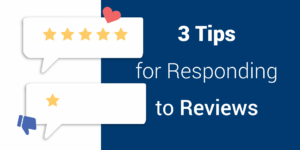Weeding out the social media truths from social media myths can be a daunting task. With so much information — and sometimes misinformation — out there, you might not immediately know what to believe when it comes to marketing your business on social media.
To help you separate fact from fiction, we’ve rounded up some of our best tips — in the form of social media myths, debunked. Prepare to leave behind some of the most common myths and feel better prepared to tackle your social media marketing.
Myth #1: My Customers Don’t Use Social Media
To say your customers don’t use social media is like saying they live under a rock. According to Statista, an estimated 3.6 billion people use social media worldwide. That number is projected to increase to 4.41 billion by 2025. It’s safe to say your audience is using social media in some form.
That’s especially true during the current pandemic. With fewer options to go outside the home and socialize, people are online all throughout the day. And if you’re not busy connecting with them, guaranteed you’ve got competitors who are already doing so.
Keep in mind, too, that your social media marketing does not operate in a silo. It’s just one part of your overall marketing. As your customers are using email and browsing online, you have an opportunity to tie all your marketing together and drive traffic to different mediums.
Read more: 5 Ways to Integrate Email Marketing With Social Media Marketing
https://www.facebook.com/rallio/posts/1675148132638352
Myth #2: My Follower Count Is the Only Metric Worth Tracking
Of all the social media myths, this one tends to come up with a high frequency. Many businesses focus on collecting followers like they’re collecting stamps — tucked away in a book and rarely seen.
The truth is, the real value in having followers is what you do with them once you have them. You have to be constantly producing fresh content for them that’s engaging, local, authentic and non-salesy.
This type of content is more likely to get liked, shared and commented on. You thereby extend your reach to even more followers, especially when you include paid advertising in your social media marketing strategy.
For a better understanding of metrics you should be tracking, check out our article The 6 Most Important Social Media Metrics to Track for ROI.
https://www.facebook.com/rallio/posts/1613056752180824
Myth #3: The More Hashtags, The Better
Hashtags can be useful to brand a certain phrase for your company, make you discoverable in search, and associate your brand with certain conversations and topics on social media. But going overboard on them can make your content unreadable and may even annoy your audience.
To avoid any hashtag missteps, keep the following key points in mind:
- Avoid using too many hashtags within the body of your caption. When you insert a #hashtag every other #word, your #sentence becomes #clunky, don’t you #think? Instead, group your hashtags together at the end of your post. On Instagram, many people will insert their hashtags into the comments section to keep the caption looking clean.
- Know your platform. You’ll be more likely to see a longer list of hashtags on Instagram than on LinkedIn and Facebook. A few well-placed hashtags can work well on those platforms. Twitter hashtags tend to center on trending topics and news; check the Explore tab to find out the latest and see if you can capitalize on a popular hashtag. Visit popular accounts, as well your competitors, on different platforms to study how they use hashtags in different ways.
- Be thoughtful about your hashtag use. Research which hashtags are trending and the context around the trend. That way, you’ll avoid inserting yourself in irrelevant conversations or those you wouldn’t want to be associated with.
Myth #4: Social Media Marketing Isn’t Worth My Time
This is one of the more complex social media myths, because there are so many different layers of it to unravel.
As we mention in myth #1, your customers are already using social media. So are your competitors.
So if you decide that social media marketing isn’t worth your time, you’re basically missing out on a huge opportunity.
It’s true that social media marketing is time-consuming. It requires constant attention to make sure you’re posting local content, engaging with your audience, responding to customer service issues and online reviews, and creating a strong social media presence.
It’s also true that your time might be better spent in other ways, like running your business, recruiting, retaining employees and other activities.
The real truth is that social media might not be worth your time, but it’s undoubtedly worthwhile to your business. Therefore, you need to make it somebody’s job to spend their time managing your social media marketing.
You can hire someone in-house or you can outsource to an agency like Rallio. But guaranteed if you don’t carve out time and space in your budget for social media marketing, you’ll miss out on this very important aspect of your overall marketing.
Read more: 5 Common Pitfalls in Social Media Marketing for Small Business
https://www.facebook.com/rallio/posts/1666251040194728
Myth #5: Social Media Should Be Sales-Focused
Also high up there on the list of most common social media myths, this one is potentially the most dangerous. When you only use social media to try and make sales, you risk getting ignored and losing any followers you have.
Stop looking at your followers as dollar figures and see them as the social, human beings that they are. Interact with them in a friendly way, responding to their comments and concerns. Post behind-the-scenes photos and videos that show the personal side of your brand.
As you build a relationship with your customers in this way, you’ll gain their trust. Then they’ll be more open to any promotional messages you have to say.
When a brand you like has taken the time to get to know you, and has likewise has allowed you to get to know them, they’ll be more receptive to special offers via your social media posts and ads.
Some experts suggest using around 80% of your content to inform, educate or entertain, and the other 20% for self-promotion. However, there is no one magic “percentage” that works for everyone. Every brand is going to be slightly different from the next.
And honestly, every social media post has some element of “promotion” to it, in that it’s relationship marketing. It requires that you be more subtle with your marketing efforts than you might be with an email campaign or a promotion on your website.
The majority of the time, your posts should not be overly salesy. Most of your posts should focus on that relationship building, even if they have an undertone of marketing your business. So whether that’s 80/20 or 70/30 or 60/40 — and maybe some months are different than others — just keep that guideline in mind as you create content.
Leave Social Media Myths Behind
We love a good myth-busting article, and hopefully you do as well. Leaving these social media myths in the dust will help you market yourself more effectively, both now and in the long term.


